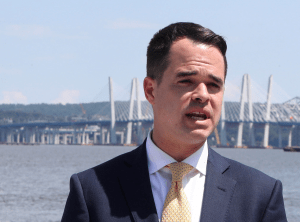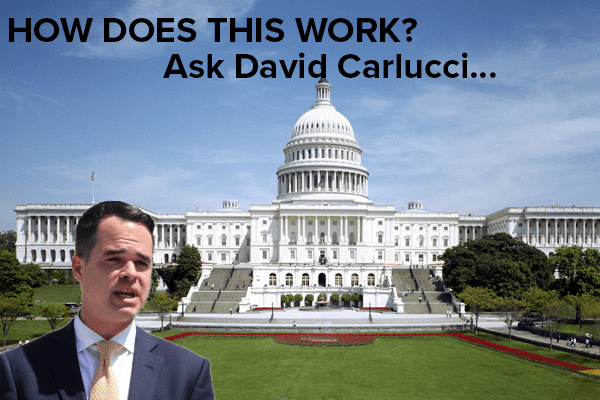|
RCBJ-Audible (Listen For Free)
|
Although Harris Is The Presumed Nominee, Pledged Or Unpledged Delegates Do Not Need To Vote For Her
By David Carlucci

On July 21st, 2024, President Biden made a historic announcement, becoming the first eligible President since Lyndon B. Johnson not to seek a second term. This decision, following his performance at the First Presidential Debate on June 27th, came after weeks of Democratic calls for him to step down from prominent members of his own party.
President Biden posted a press release to all his socials on the morning of the 21st, reminiscing on the victories of his presidency, explaining his rationale for stepping down from the race, and endorsing Vice President Kamala Harris as his replacement on the Democratic ticket. The Vice President swiftly accepted President Biden’s endorsement later that afternoon, publicly initiating her presidential campaign.
So, does this mean that VP Harris automatically earned the Democratic nomination? The answer is not straightforward. There are still numerous hurdles that Harris, and any other potential Democratic candidates, have to navigate before they can secure their chance for the presidency in November.
The Delegates
Delegates are the key to winning any nomination, Democrat or Republican. A delegate is a person selected by their state or territory’s political party to vote in place of their state for the election. The Democratic Party has “pledged” and “unpledged” delegates. The former must adhere to whomever their state chooses in the primary, while the former may stray away from their state’s choice. The Democratic Party also utilizes superdelegates, also known as automatic delegates. These are high-profile Democrats, usually those currently or with experience in office.
An estimated 4,672 Democratic delegates will be at the Democratic National Convention next month. Before dropping out, Biden earned 3,896 pledged delegates before the convention, approximately 99 percent of the available pledged delegates and nearly double the necessary 1,968 delegates to win the nomination. President Biden won all New York’s 268 delegates after the April 2nd state primary.
The current Democratic Party rules lack a system for President Biden to directly grant his delegates to Vice President Harris, meaning she will have to earn the majority of the party’s delegates in August. Biden’s endorsement will raise Harris’s chances of becoming the Democratic nominee, but the convention is open for other candidates to seek the nomination – the first time since 1952.
Although Harris is the presumed nominee, pledged or unpledged delegates do not need to vote for her. The current rules for pledged delegates explain that “Delegates elected to the national convention pledged to a presidential candidate shall in all good conscience reflect the sentiments of those who elected them.” At first glance, Biden still holds onto his won delegates, but the ‘good conscience’ clause allows delegates to choose someone else, Harris or not. This means there is still room for a significant candidate to step into the spotlight, forcing Harris to fight for the nomination at the convention.
However, there might be one solution to this chaos before the convention’s August 19th start. The DNC planned an early August “virtual voting” session where delegates would have approved President Biden’s nomination weeks before the convention. It is unclear whether the DNC will follow through with the virtual roll call, but Harris could be confirmed as the nominee if the party chooses to run with the online vote. Yet, with the unprecedented nature of this year’s convention and DNC Chair Jaime Harrison’s vow to “undertake a transparent and orderly process,” the odds of a virtual vote are low.
The Money
Delegates are crucial to winning the nomination, but money significantly influences a successful presidential campaign. And here’s the good news for VP Harris: following Biden’s endorsement, she automatically inherited the Biden-Harris war chest.
Unlike delegates, campaign funding does not need to be pledged to a single person. In this case, the account registered under the Federal Election Commission (FEC) is in the name of Biden and Harris, meaning the Vice President can automatically assume the funds. Due to the unprecedented legal nature of this inheritance, Republicans may spearhead some legal issues.
As of the end of June, the Biden-Harris campaign had over $96 million in cash on hand. As of today, all that money is hers. However, if another candidate is chosen through the DNC, the Biden-Harris campaign may transfer all that money to a federal super PAC.
The Verdict
The stars appear to be aligned for Vice President Harris, but the decisions of key party leaders could significantly impact the Democratic National Convention. For now, all eyes will be on Democrats at the top. Party leaders like former President Barrack Obama and former Speaker Nancy Pelosi carry a lot of influence over the party. Harris might be playing defense next month if either of these individuals or anyone of a similar caliber endorses another candidate.
Simultaneously, Democrats must keep their eyes on the DNC leaders. From now until August 19th, there is plenty of room for a virtual vote and potential rule changes, which could significantly alter Harris’s path toward the nomination.
August is so close and yet so far away in politics. Plenty can happen within and outside the Democratic Party, disturbing a smooth nomination process. At the same time, the proceedings may continue as planned, now with a different name; only time will tell. One thing is for sure, however: the Democratic National Convention will end with a Democratic Party eager and willing to take down Donald Trump in November.
David Carlucci consults organizations on navigating government and securing funding. He served for ten years in the New York Senate.












